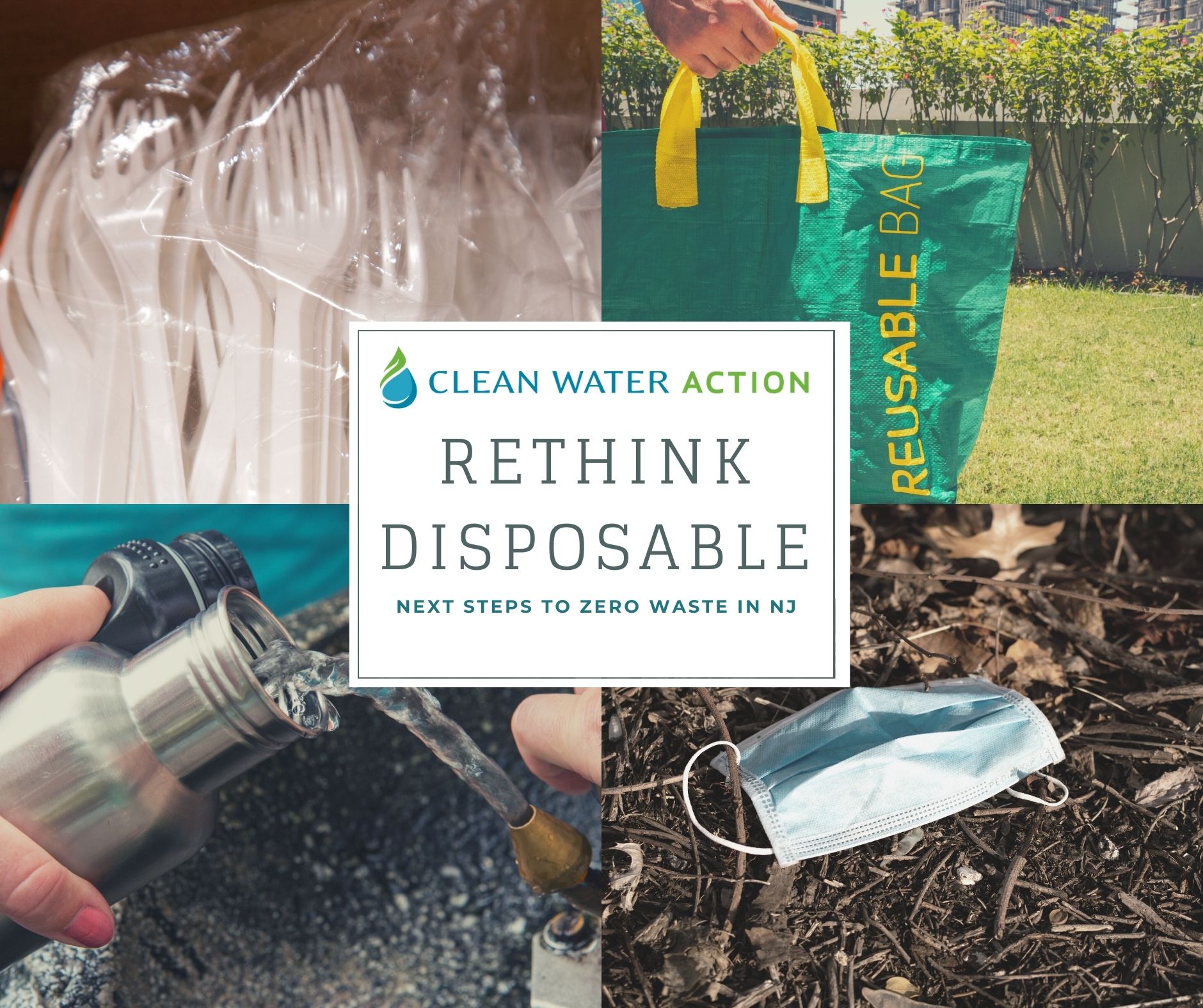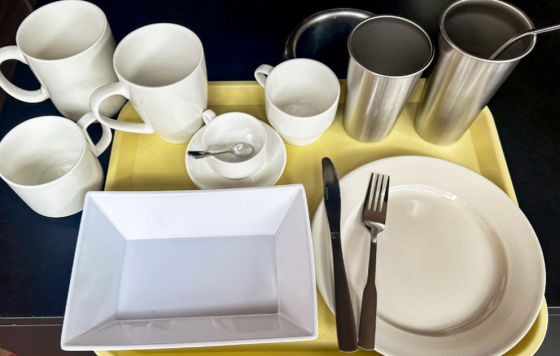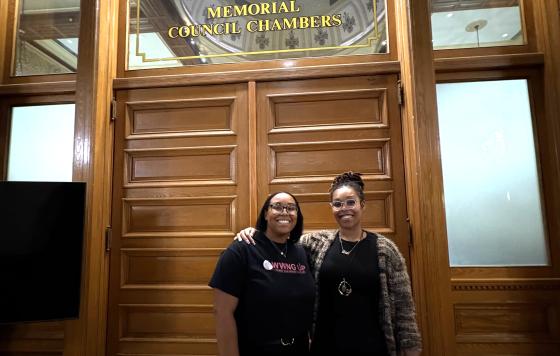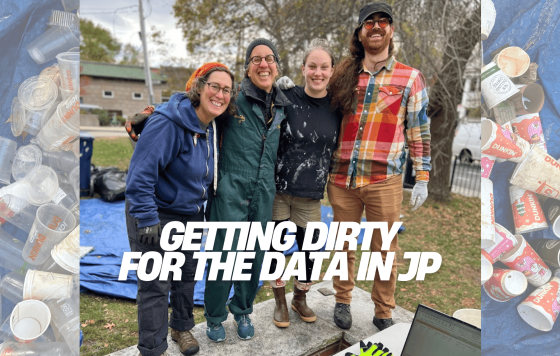
Despite so many challenges, we accomplished so much in 2020. One of our biggest victories in New Jersey was helping pass legislation banning single-use carryout bags and polystyrene foam food containers, while also limiting unnecessary use of plastic straws by requiring restaurants to provide them only upon request! This is a huge step forward but we still have a long way to go to fight plastic pollution and climate change. So what else can we do? Find out in our ReThink Disposable Blog Series which will focus on how we can prevent waste before it starts. If we don’t end the “throw-away” lifestyle now, there will be more plastic than fish in the ocean by 2050.
PART I: At Home and In Your Community
While the new state will not go into effect until May 2022, over 50 local ordinances remain in effect helping our neighbors and local businesses prevent waste and plastic pollution. Contact your town's Environmental Commission or Green Team to see if you can volunteer to help! If your town is considering a hold or repeal of your local plastics ordinance due to COVID or other reasons, make sure you let them know your opposition! These local ordinances are tiding us over until 2022 and will make the transition easier for businesses and consumers in the future. Concerns about spreading COVID-19? Leading health experts say that reusable bags, cups, bottles, etc. are still safe to use even during the pandemic. If you are a business or restaurant interested in switching from single-use disposables to reusables, check out our Reuse During Covid Guide and visit our website to learn how you can protect people and the environment while saving money.
As consumers, we can wear reusable masks when possible and save disposable PPE for healthcare workers and those who need them. Disposable masks have become a common marine and litter debris item during the pandemic and studies estimate that globally we use 129 billion face masks a month.
People are ordering more takeout than ever during the pandemic, creating more single-use waste. If you want to support a local restaurant, make sure you specifically ask for no utensils, napkins, straws, or extra condiments while placing your order. Some online food delivery services have this option available, otherwise you can request this in the "notes" section of your order. This will prevent waste and help local restaurants save money!
Clean Water Action's ReThink Disposable program has joined a coalition of groups led by Habits of Waste to #CutOutCutlery! We are urging third party delivery companies to adopt "opt-in" policies - where customers must affirmatively request any accessory foodware items when they place their orders - rather than "opting out". Since the start of the campaign, Postmates and UberEats have made the change! Now it's time to convince Doordash and Grubhub to do the same!
You can take action and contact them here.
The most important thing we can do to continue fighting plastic pollution and waste is to rethink our consumerism. We are more than just individual consumers. We can work together as a community.
Amazon has profited immensely because of the pandemic, and according to a report by Oceana, last year the company generated 465 million pounds of plastic waste from packaging materials. As we recover from the pandemic we can do things differently. We can rebuild a society that values people and community over profit.
In my North Jersey town, there is a thriving community on social media dedicated to swapping and giving away used items of all sorts: clothes, furniture, home goods, books, electronics, toys... you name it. Instead of buying something on Amazon, consider searching for items on these community groups. Or instead of putting that couch out on the curb for bulk garbage day, share a photo and description to your local "curb alert" group first. You'll prevent tons of waste from getting trucked off to polluting incinerators and landfills. And you'll connect with your neighbors and contribute to a culture of sharing and community-building during a time when it's needed more than ever!
Is your town ready to take the next policy step toward zero waste? Stay tuned for Part II, which will focus on what municipalities can do next after banning the most common single-use plastics.


